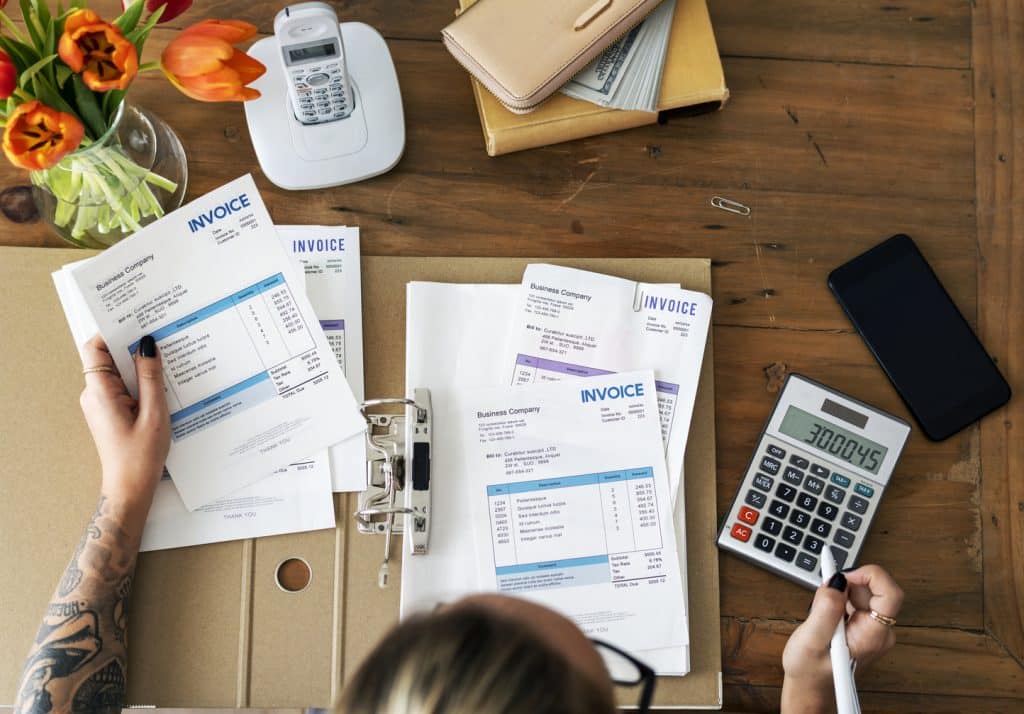When a foreigner entrepreneur arrives in Brazil, he will rapidly wonders what a nota fiscal is. Nota fiscal is issued for every financial transaction, whether you are buying a snack at the airport, shopping at a supermarket or making an online purchase of products or services. This document is fundamental to the Brazilian economy and can be defined as a compulsory tax document issued by companies for buying and selling products or providing services. It serves as an official proof of the commercial transaction, recording essential information for tax, accounting and control purposes.
In the past, invoices were issued manually. However, technology has taken care of digitizing them, organizing data, calculating tax rates automatically and delivering these complex operations ever more quickly, reliably and securely.
Therefore, if you intend to start a business in Brazil or expand your existing business, this term will be used frequently and should be known by your team.
In this article, we feature a special interviewee: Marcilon Farias de Lima Junior, Tax Manager and accounting specialist at Europartner. He explained everything you should know about the topic.
What are the functions of the nota fiscal?
In a complex tax system like Brazil, the nota fiscal has several functions and plays a very important role. Here are some of its main functions:
Ensuring the payment of taxes: The nota fiscal is essential for collecting taxes such as ICMS and ISS, combating tax evasion and contributing to the collection of funds by the state.
Ensuring the origin and quality of products or services: It documents the origin of goods and the provision of services, protecting consumer rights and combating fraud.
Formalizing commercial relations: Issuing invoices makes transactions more transparent and secure for both the buyer and the seller.
Generating economic data and information: Invoices serve as the basis for creating relevant statistics and economic indicators for the government, companies and society in general.
What types of Nota Fiscal in Brazil are there?
There are several types of nota fiscal, which are issued according to the business:
- Electronic Invoice (NF-e): This replaced paper invoices in 2006 and is issued and stored digitally. It is currently the most widely used model.
- Electronic Consumer Invoice (NFC-e): Simplifies the issuing of invoices for products to final consumers, usually in shops and restaurants.
- Electronic Service Invoice (NFS-e): This ntended for the provision of services, such as medical, legal or accounting services.
- Nota Fiscal Avulsa Eletrônica (NFA-e): This is used in specific situations, such as the sale of products by individuals or interstate transactions.
- The Telecommunications and Electricity sectors have a specific invoice model.
Compulsory informations in nota fiscal
What are mandatory datas in a nota fiscal? It contains several important pieces of information. First, it includes issuer details such as the company name, CNPJ (company taxpayer number), and company address. Recipient details are also provided, including the name, CPF/CNPJ (personal or company taxpayer number), and the buyer’s address.
Additionally, the description of products or services is detailed, specifying the quantity, unit value, and total value. The nota fiscal also features a tax calculation section, which includes ICMS, ISS, and other taxes levied.
Furthermore, the document outlines the payment method, indicating whether it is cash, card, wire transfer, or another method. Finally, it includes an access key, a unique code that guarantees the authenticity of the electronic invoice.
Read also: FAQ about accounting and tax for international companies in Brazil
How important is it to issue the nota fiscal?
Combating tax evasion: The invoice is the main tool for combating tax evasion, ensuring that taxes are properly collected by the state. By issuing invoices, all commercial transactions are recorded and tracked thereby making tax evasion more difficult and increasing tax collection.
Fair competitiveness: Issuing the document guarantees a fairer and more competitive business environment, as it prevents companies from evading taxes and gaining undue advantages over those that fulfill their tax obligations.
Formalizing the economy: Issuing invoices helps to formalize the economy, encouraging companies to become regularized and operate within the law. This creates more legal certainty for all economic agents and promotes the development of the formal market.
Transparency in commercial relations: The invoice provides greater transparency in commercial relations, as it records all the information about the transaction, such as products or services purchased, amounts paid, taxes levied and details of the parties involved. This transparency benefits both companies and consumers.
Protection of consumer rights: The invoice is an essential document for protecting consumer rights, as it guarantees the origin and quality of the products or services purchased. In the event of problems with the purchase, the invoice is essential for consumers to be able to claim their rights, such as exchanging the product, refunding the amount paid or repairing the service.
Generation of economic data and information: Invoices serve as the basis for generating accurate and reliable economic data and information, which is essential for planning and decision-making by the government, companies and research organizations.
Modernization of public administration: The implementation of the electronic invoice (NF-e) has contributed to the modernization of public administration, making the process of issuing and controlling invoices more efficient, agile and secure.
Stimulating innovation: The adoption of the NF-e has also boosted innovation in the technology sector, with the development of digital solutions for issuing, managing and storing electronic invoices.
Strengthening fiscal citizenship: The obligation to issue invoices contributes to the development of fiscal citizenship, making citizens aware of the importance of paying taxes and their role in building a fairer and more developed country.
“You asked me: what is nota fiscal? The nota fiscal is the cornerstone of Brazil’s complex tax system unique in the world, serving as an important tool for tax collection, consumer protection, and economic data generation. Its importance extends beyond mere documentation; it underpins fair competition, formalizes the economy, and contributes to the overall efficiency of public administration.”
Marcilon Farias de Lima Junior, Tax Manager
Read also: How to register a company in Brasil?
Who is obliged to issue the invoice in Brazil?
In Brazil, the obligation to issue invoices applies to a wide range of companies and professionals, covering both the trade of products and the provision of services.
In general, the following are obliged to issue invoices:
Companies of all sizes and tax regimes: Presumed Profit, Real Profit, Simples Nacional and MEI (except in some specific situations).
Professionals: Doctors, dentists, lawyers, accountants, engineers, architects and others.
Service providers in general: Transport companies, hotels, restaurants, mechanics’ workshops, beauty salons, etc.
Industries and production companies: Those that manufacture or transform products for sale.
Retailers: Shops, supermarkets, bakeries, pharmacies, etc.
Wholesale traders: Distributors, importers and exporters.
Telecoms companies: Fixed-line, mobile and internet operators.
Electricity, water and gas companies: Those that supply these services to consumers.
Who is not obliged to issue an invoice?
In Brazil, issuing an invoice is compulsory for most commercial transactions involving the purchase and sale of products or the provision of services. However, there are some exceptions to this rule, i.e., specific situations in which issuing an invoice is not required.
Check out the main exempt transactions:
- MEI sales to final consumers in the same municipality:
Individual Microentrepreneurs (MEIs) are exempt from issuing invoices on sales to final consumers within the same municipality in which the company is established.
Requirements:
- MEI annual turnover of no more than R$ 81,000.00.
- Sales to individuals, not companies.
- Establishment of the MEI in the same municipality as the sale.
- Street vendors in authorized places:
Street vendors generally don’t need to issue an invoice if their sales take place at fairs or popular markets or public places authorized by the municipal government.
- Donations of goods or services:
- Non-profit donations of goods or services do not require an invoice.
- Examples: Donations to charitable organizations, blood donations, food donations to charities.
- Services of insignificant value:
- Services of a small value, generally up to R$50.00, such as the sale of single newspapers and magazines, can be exempt from issuing an invoice.
- Important: Check the limit value and specific rules in the legislation of your state or municipality.
- Transactions between companies in the same group:
- Transactions between companies in the same business group generally do not require an invoice, as long as they are duly documented by other tax receipts, such as debit or credit notes.
- Conditions:
- The companies must be part of the same parent CNPJ
- Transactions must be duly documented in tax and accounting books
- Property transactions
The rental of goods and the sale of property also have distinct characteristics. In both cases, there is no need to issue an invoice, a receipt is enough to prove the transaction.
Read also: Taxes in Brazil for foreigners: What are the incentives?
Brazil’s nota fiscal vs. taxes around the world
Brazil has a very complex tax system, with countless calculations that need to be made to cover all municipal, state and federal taxes.
Here there is the electronic invoice, while in countries like France and the USA, for example, there is VAT, which greatly simplifies tax collection and makes calculations easier.
“Brazil is a bureaucratic country, and regularizing your company is an important part that can be very expensive if not done properly. Having a partner who has end-to-end expertise makes it easier for you and can even reduce your costs. Having a team that can take care of all the fiscal and tax aspects makes your business much more viable.”
Marcilon Farias de Lima Junior, Tax Manager.
Having a specialized team can make your job much easier. That’s why Europartner is proud to have over 15 years’ experience in the Brazilian market and to have helped hundreds of companies organize their operations in Brazil.
Don’t waste any more time: get in touch now and let our team of experts guide your business to the best practices for success.




